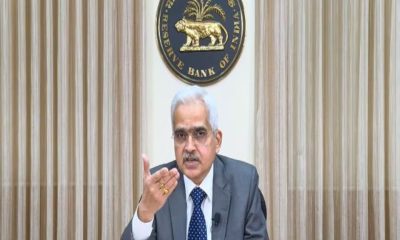Latest business news
India’s RuPay threat to Visa? Payment giant complains to US govt for THIS reason
Visa has raised concerns about a level playing field in India during a meeting between US Trade Representative (USTR) Katherine Tai and VISA executives, including CEO Alfred Kelly.

India News
Union Budget 2026 highlights: Nirmala Sitharaman Raises Capex to Rs 12.2 Lakh Cr, West Bengal Gets Major Allocation
Finance Minister Nirmala Sitharaman is presenting the Union Budget 2026 in Parliament today. Follow this space for live updates, key announcements, and policy insights.
India News
Union budget 2026 to be presented on Sunday with special trading session
The Union Budget 2026 will be presented on a Sunday for the first time in over two decades, with NSE and BSE announcing special trading sessions for the day.
India News
Modi says right time to invest in Indian shipping sector; meets global CEOs
-

 Latest world news24 hours ago
Latest world news24 hours agoPM Modi to begin two-day Israel visit, defence and trade in focus
-

 India News15 hours ago
India News15 hours agoMK Stalin predicts frequent PM Modi visits to Tamil Nadu before assembly election
-

 Latest world news15 hours ago
Latest world news15 hours agoIndia eyes Rs 8,000 crore mid-air refuelling aircraft deal as PM Modi begins Israel visit
-

 Latest world news52 mins ago
Latest world news52 mins agoPM Modi reaffirms support for Israel, recalls 26/11 victims in Knesset address
-

 Latest world news44 mins ago
Latest world news44 mins agoCanada softens stance on alleged Indian interference ahead of PM Carney’s India visit
-

 India News33 mins ago
India News33 mins agoPM Modi crosses 100 million followers on Instagram, first world leader to achieve milestone
-

 Latest world news18 mins ago
Latest world news18 mins agoPM Modi and Netanyahu pledge deeper defence, trade ties during Israel visit
-

 India News4 mins ago
India News4 mins agoOver 5,000 tribals join BJP in Assam’s Goalpara ahead of elections











